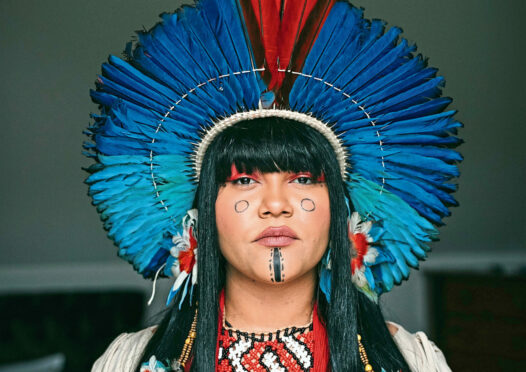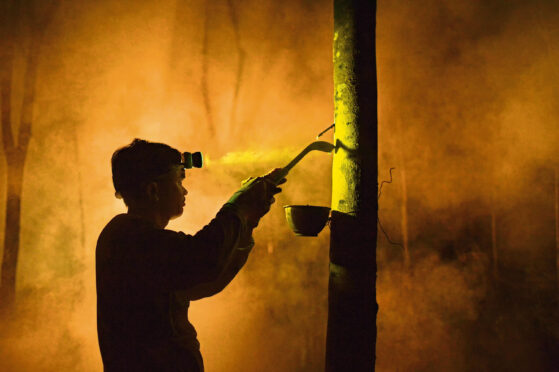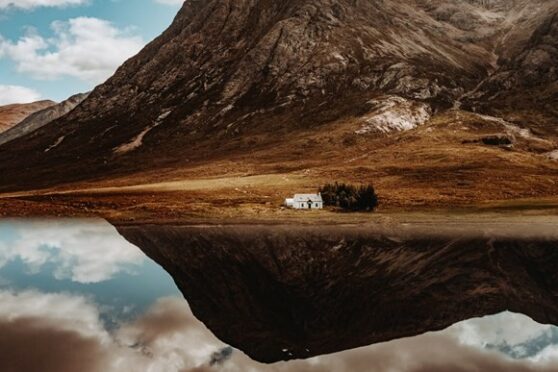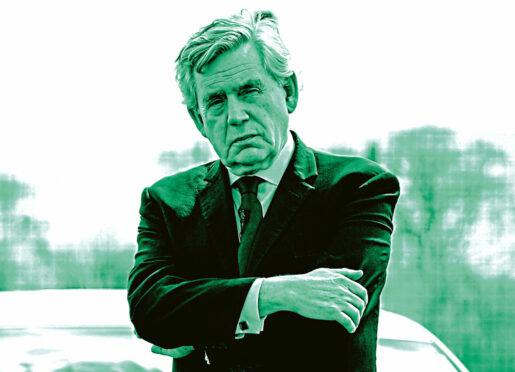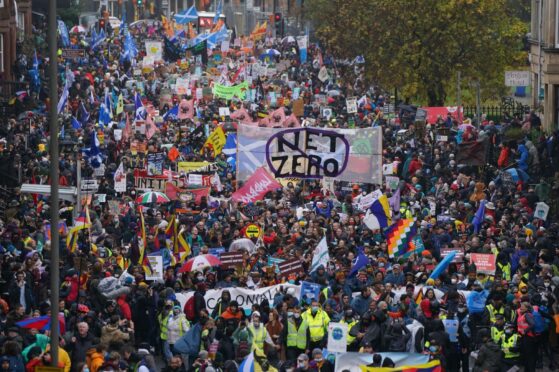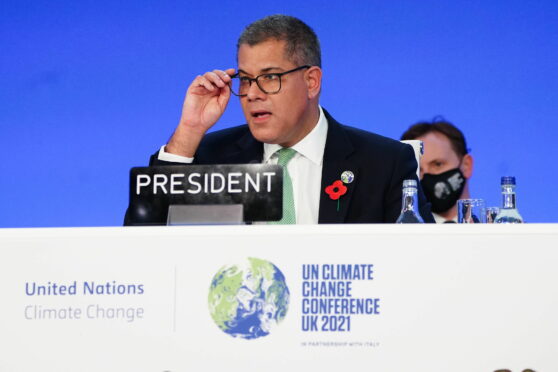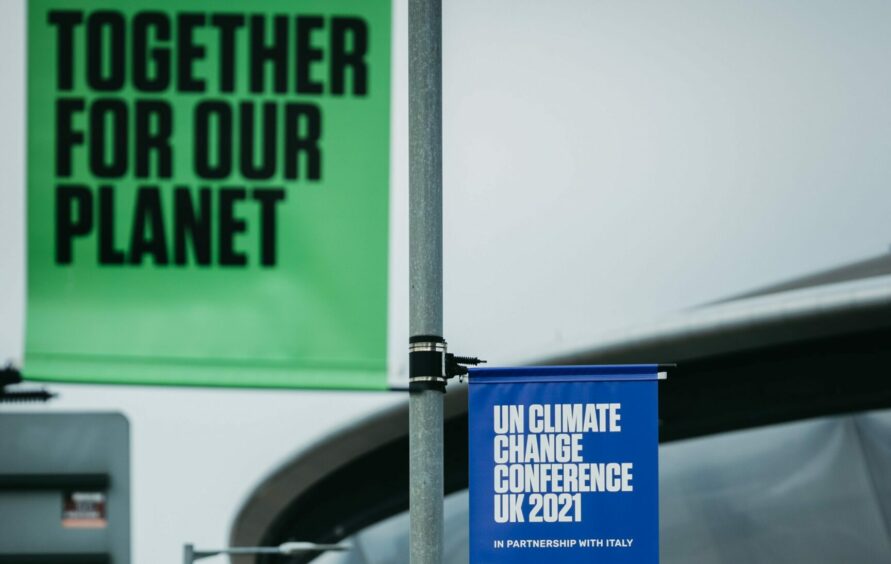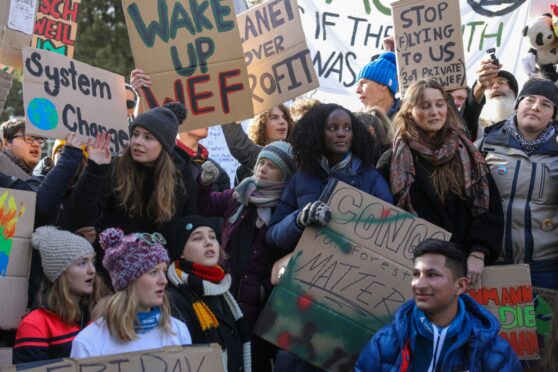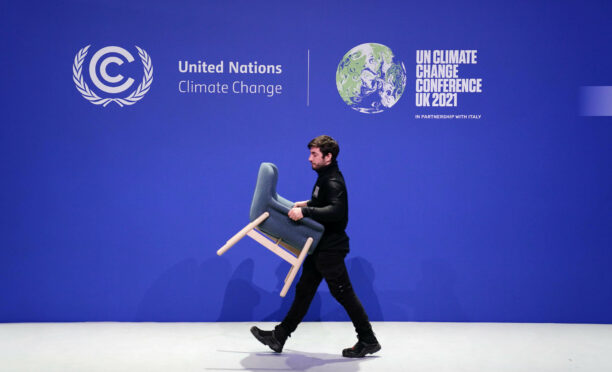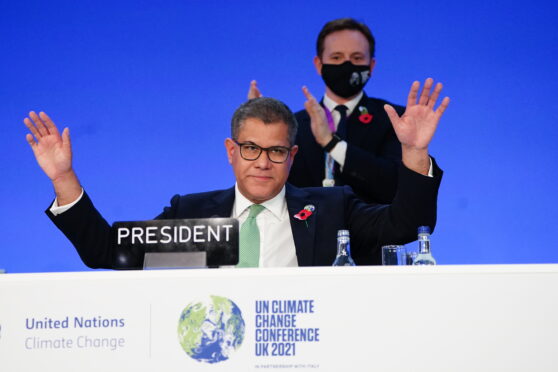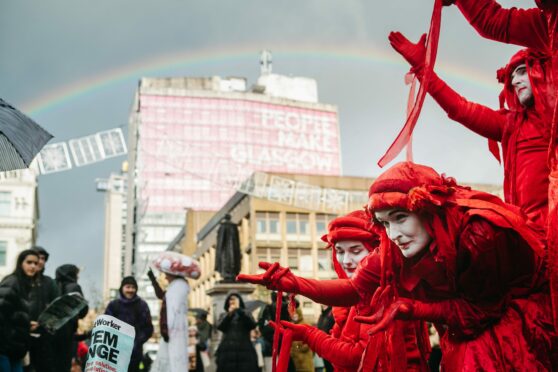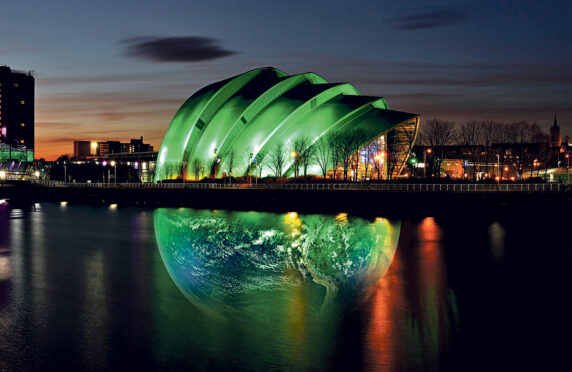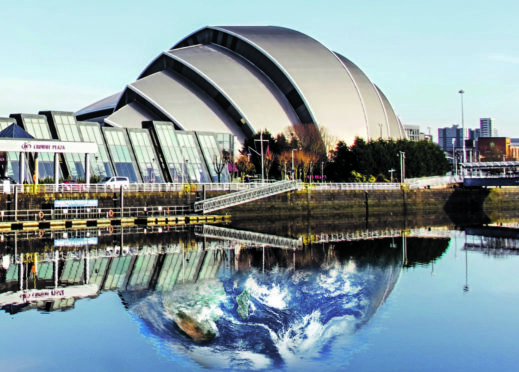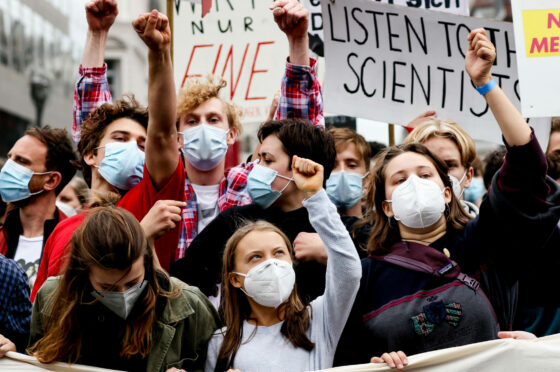
Talks between 120 world leaders in Scotland’s biggest city over the next two weeks have been described as humanity’s last chance to save the planet.
The Cop26 summit in Glasgow, attended by up to 25,000 people, will seek to secure more ambitious targets from countries to cut emissions to limit catastrophic temperature rises.
Cop, or Conference of the Parties, is held by the United Nations every year. Cop21, the 21st conference held in France in 2015, was arguably the most significant, giving birth to the Paris Agreement on climate change. It saw countries commit to limiting global temperature rises to well below 2°C and as close as possible to 1.5°C.
But as the world faces stronger and more frequent droughts, wildfires, flooding and storms, agreement is needed on how to put the aspirational goals outlined in the deal into practice.
The Paris Agreement was championed by UN Secretary-General Ban Ki-moon, who made tackling climate change his top priority during his 10 years leading the organisation. Since leaving the UN, he continues to campaign against climate change and chairs the Ban Ki-moon Centre for Global Citizens.
The centre’s chief executive, Monika Froehler, hopes this will not be the world’s last chance but does not know how many more there will be.
She said: “Hopefully it’s not humankind’s last chance to save the planet, but we need to take it very seriously. Maybe we can compare it to a patient who has a fever. The patient is sick, but we know the cure.
“We have to reduce emissions, we have to boost the green economic recovery, we have to invest in resilience, we need global collaboration and cooperation.
“We need to be ambitious in Glasgow as there is an incredible urgency. Cop26 is a big milestone and there is a lot of ambition that will hopefully be presented in Glasgow.
“Will it be enough? We will see. I know that the UK Government is working very hard, together with many partners who are helping with the negotiations and the pre-discussions, so the Cop26 will hopefully turn out to be a success comparable to the one in Paris.”
Every country that signed up to the Paris Agreement in 2015 set out its own targets, known as nationally determined contributions (NDCs), for reducing greenhouse gas emissions and limiting global warming to below 2°C and as close as possible to 1.5°C. They have been asked to come forward with new targets for Cop26.
Froehler said: “At the moment they are not ambitious enough. As they stand now, they increase emission of greenhouse gases by 16% and what we need is actually a 45% reduction.
“But the political willingness seems to have increased, financial contributions are about to pick up, and the private sector, public sector and non-governmental organisations finally seem to be singing from the same song sheet when it comes to the recognition of the 1.5° goal. There are a lot of ifs, but if countries come together, if they collaborate, and if they produce strategies that are meaningful and have high levels of ambition, then we can make it happen.”
The summit will be attended by 120 world leaders, including US President Joe Biden, who will be bringing with him a dozen cabinet members and top advisers.
UK Prime Minister Boris Johnson, TV naturalist Sir David Attenborough and environmental activist Greta Thunberg will also be there. Russian President Vladimir Putin will not attend, though he will send a delegation. Xi Jinping, president of China, which is the world’s biggest carbon emitter and plans to build new coal-fired plants, is not expected to visit as he hasn’t left his country since the start of the pandemic.
Froehler said: “We need everybody on board. We need governments, the private sector, civil society, indigenous people and young people at the table. As we have seen with Covid-19, there are global challenges that can’t be managed by countries on their own. Similarly with the climate crisis, which is the even bigger and far-reaching crisis, everyone needs to be involved.”
In August, a report by the UN’s Intergovernmental Panel on Climate Change (IPCC), described as a “code red for humanity”, warned that the world was set to hit the 1.5°C global warming limit within the next 20 years without “immediate, rapid and large-scale” reductions in greenhouse gas emissions.
Froehler said: “We were informed that the temperature rise is human-caused and that we are already at 1.1°C. We need to urgently act. The climate hazards are already happening.
“We see the droughts, floods, wildfires and the other extreme weather conditions increase in frequency and impact. The global community needs to adapt to these conditions and China is no exception.
“Everyone needs to provide for mitigation and adaptation. What has been challenging is that the financing for these efforts is not yet enough. Developed nations pledged that $100billion would be spent annually aiding the fulfilment of the Paris Agreement but we’re not yet quite there.
“The efforts of the UK Government, Alok Sharma and all of the people that are working with the Cop presidency show promise. The multilateral development banks have stepped up, the public sector has made major pledges, and the private sector is increasingly contributing.
“But can it be done without the big players? The answer is no. It can’t be done without the USA, China and the other big emitters.”
At the summit, central negotiations will focus on countries attempting to finalise the rules to put the 2015 Paris Agreement into effect.
Froehler said: “First, countries need to step up to cut their emissions and also to present their plans to become net zero by 2050. Second, developed nations need to step up to provide the $100 billion a year.
“Third, we need to have concrete plans on how to adapt our societies to the climate change that is already happening. And fourth, we need to step up and agree on the missing rules because the Paris Agreement kept some of the rules open.
“We have to decide on how to, for example, increase transparency in GHG inventories and how to align the timeframes. These were some of the items that were left out in the rulebook of the Paris Agreement.”
Johnson has said that his priorities at Cop26 will be commitments on “coal, cars, cash and trees” – ending coal power, banning the sale of new petrol and diesel vehicles, raising money to tackle climate change and planting trees in a sustainable way and curbing deforestation.
Sustainable agriculture will also be high on the agenda at Cop26, with animal agriculture being a major contributor to greenhouse gas emissions.
According to scientists, the world is threatened by both climate change and biodiversity loss and one can not be solved without addressing the other.
Froehler said: “Agricultural adaptation is absolutely essential because 25% of greenhouse gas emissions can be traced to the agricultural sector contributing to global warming – including carbon dioxide, methane and nitrous oxide
“Climate mitigation and adaptation needs to take the agricultural sector into close consideration because the smallholder farmers are bearing the brunt of the burden. They are the victims of droughts, floods and other extreme weather conditions, and they can’t harvest what they have traditionally planted. They need to have climate-resilient crops to grow, they need to have the right irrigation systems, and they need the right information on how to forecast the various conditions they are confronted with.
“They need funding and financing, and what is also needed is innovation and research which is tailor-made to the conditions of the single smallholder farmers in vulnerable countries around the globe.
“The world’s population is expected to rise by about two billion by 2050, and that means our food systems will come under massive strain.
“We need to be able to adapt, and for that we need climate-smart agriculture.”
The Queen, who has confirmed she will not be attending the Glasgow summit, recently criticised world leaders’ inaction on tackling climate change, admitting she was “irritated” by those who “talk but don’t do”.
Up to 25,000 people are expected to be at Cop26. As well as world leaders, there will be charities, businesses, negotiators, lobbyists, media and protesters.
Froehler said that pressure from young people could help push politicians into action. Last month hundreds of activists, including Greta Thunberg, attended Youth4Climate, a two-day event in Milan.
Froehler said: “The young generation feels particularly strongly that it’s not enough to just talk the talk but not walk the walk.
“A declaration by the Youth4Climate Summit will shed a light on exactly what we need to do to keep the 1.5° alive, to scale-up adaptation, to involve youth, to mobilise the finance, to finalise the rule book for enhancing the transparency framework and to agree on common timeframes for the various ambitious plans.
“Youth wants to be heard and youth needs support to be at the table. When you speak to people on the street, some of them might not know what the acronym Cop26 means. Some people don’t know what NDCs or the IPCC are. People don’t know what these acronyms stand for.
“But they do feel strongly about the changing weather conditions that they experience in their own communities. They do feel strongly as consumers about buying local goods. They do feel strongly about wanting their kids – the next generation – to be better off.
“I would invite them to be part of Cop26. I would invite them to listen to the debates. I would invite them to check what are the hopeful indicators, but also to be very critical where we do need activism, where we do need people on the street, where we do need governments to be pushed in the right direction to make our lives on this planet sustainable.”
Froehler added: “People may remember from the ’90s the eco rebel and environmental warrior Swampy. What we will hopefully see at Cop26 is that voices like Swampy’s are now integrated in the considerations.
“What keeps me hopeful is having more youth voices represented, more indigenous voices represented and more eco rebels and activists represented in the actual negotiation chambers.”

Enjoy the convenience of having The Sunday Post delivered as a digital ePaper straight to your smartphone, tablet or computer.
Subscribe for only £5.49 a month and enjoy all the benefits of the printed paper as a digital replica.
Subscribe